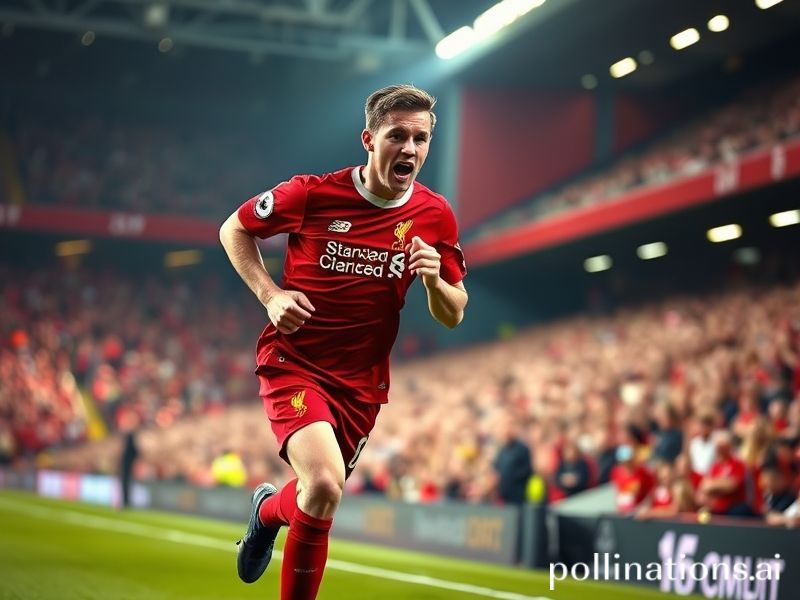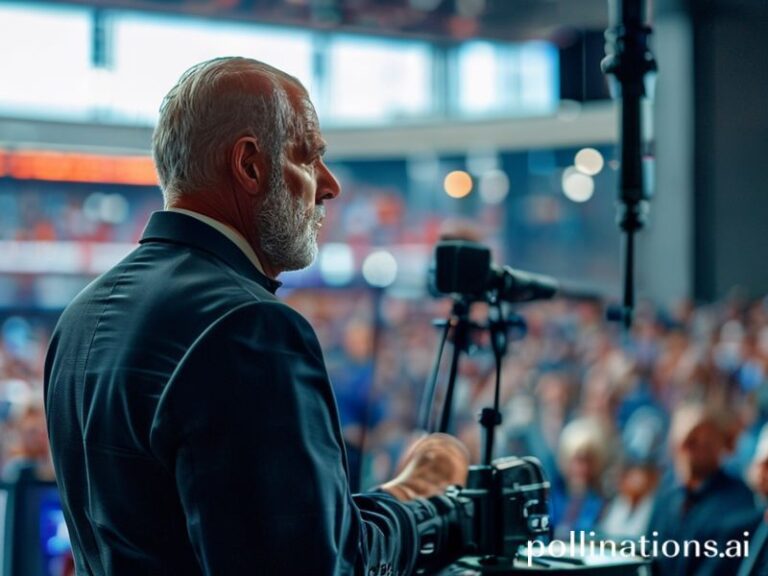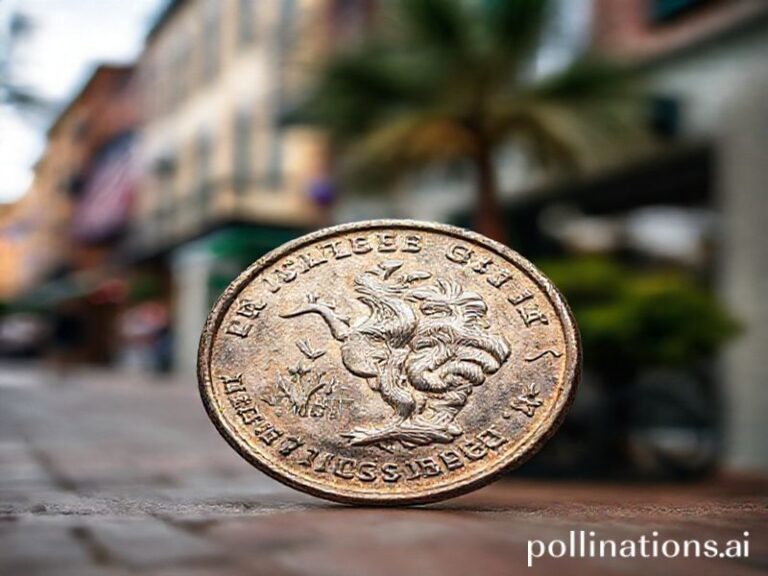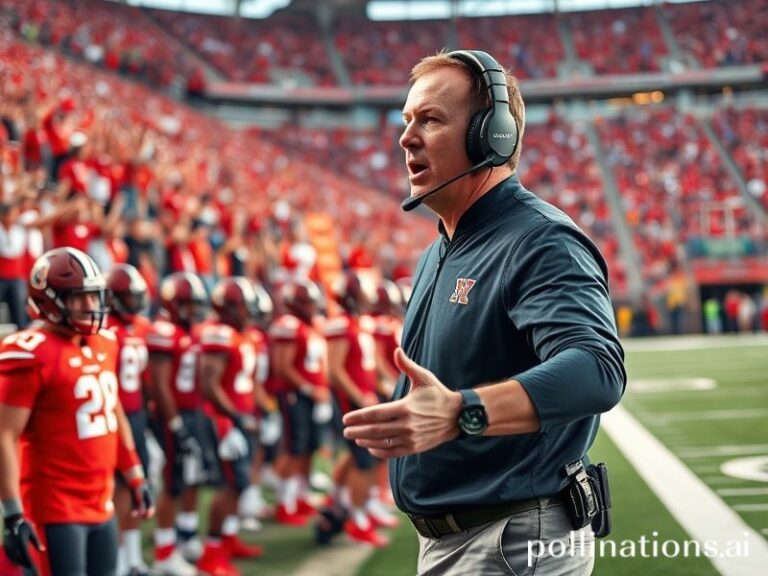Andy Robertson: The Socialist Full-Back Selling Global Capitalism Back to Itself
Andy Robertson: The Last Honest Scotsman Running Full-Tilt at Global Capitalism’s Windshield
By Dave’s International Desk, still nursing a diplomatic hangover from COP29
If you stand on Calton Hill at 4 a.m. and listen hard, you can almost hear the collective grinding of teeth in boardrooms from Shenzhen to Silicon Valley. The sound is produced by executives who just realised that a 30-year-old Glaswegian left-back—who once had to borrow bus fare to a trial at Queen’s Park—has become a minor sovereign wealth fund all by himself. Andy Robertson’s latest contract extension with Liverpool is not merely a footnote on Sky Sports; it’s a small tectonic shift in the way late-stage capitalism packages, monetises, and occasionally humanises its most exportable myths.
Let’s zoom out. Every four years the World Cup reminds us that football is the planet’s most reliable geopolitical satire: tiny island nations fielding teams bankrolled by offshore hedge funds, petrostates laundering reputations through seven-figure sponsorships, and, somewhere in the middle, a kid from Dundee who still signs autographs until the stadium lights click off. Robertson is that kid. He runs up and down a rectangle of grass so relentlessly that satellites can track his heat-map like a low-orbit oil spill. Brands love that sort of thing. They also love that he’s never been caught on camera biting anyone, racially abusing anyone, or laundering cryptocurrency for the North Korean navy. In the age of influencer grotesquerie, this counts as radical authenticity.
The global implications are delightfully absurd. Liverpool’s parent company, Fenway Sports Group, has leveraged Robertson’s image rights across three continents, selling everything from Thai energy drinks to Canadian life insurance. Meanwhile, the Scottish government quietly notes that every Robertson Instagram post tagged “#SeeScotland” generates about £1.3 million in tourism revenue—roughly the annual budget of a medium-sized Highland council. Somewhere in Edinburgh, a civil servant is calculating how many defensive overlaps equal one subsidised ferry route to the Outer Hebrides. The answer, like most economic forecasts, is written in pencil and prayer.
Off the pitch, Robertson moonlights as a philanthropist with the deadpan efficiency of a Scandinavian tax auditor. His AR26 charity recently funded breakfast clubs in Glasgow primary schools, ensuring that future generations can grow up strong enough to blame everything on Brexit. The initiative has been replicated in refugee camps in Jordan, where kids wear donated Liverpool shirts over their UNICEF jackets like ironically branded armour. If soft power were a Spotify playlist, Robertson would be track one: vaguely uplifting, algorithmically indestructible, and inexplicably popular in Jakarta.
But let us not romanticise too much. The same week he renewed his contract, Amazon Prime announced a fly-on-the-wall documentary promising “unprecedented access” to the Liverpool dressing room. Translation: a team of 37 cinematographers will spend eight months trying to catch Robertson saying something controversial in a Scottish accent thick enough to slice with a claymore. The series will stream in 240 countries, generating more carbon emissions than Uruguay, but the credits will include a tasteful line about “carbon offset via reforestation in Aberdeenshire,” so everyone can sleep like a baby seal on melting ice.
Viewed from Davos—where the world’s elite gather annually to compare Himalayan ski-lift tariffs—Robertson is a case study in “virtuous brand adjacency.” He tackles, he grins, he doesn’t appear to beat his family. That’s practically ESG-compliant sainthood. One Goldman Sachs analyst told me, off the record, that if Robertson were a bond, he’d be triple-A rated with a green tranche and a kilt coupon. I asked what that meant. He ordered another negroni and muttered something about “geopolitical alpha.” Translation: nobody knows, but it sounds expensive.
So what does it all add up to? A working-class Scotsman has become a transnational asset class, a walking remittance scheme, and—most improbably—a symbol of hope in a world that usually reserves hope for quarterly earnings calls. When Robertson sprints down the Anfield touchline, 53,000 fans sing about him being “Scouse”—a term of endearment implying honorary citizenship in a city that once tried to declare independence from Thatcher’s Britain. Somewhere in that contradiction lies the punchline: the global economy can commodify everything except, it seems, a left-back who still flinches at the price of oat milk.
In the end, Robertson’s greatest trick is reminding us that the absurdities of modern life are not bugs; they’re features. And if, in between tackles, he can feed a few hungry kids and make a refugee smile, then perhaps the joke’s on those of us cynical enough to think that’s not a decent return on investment.







